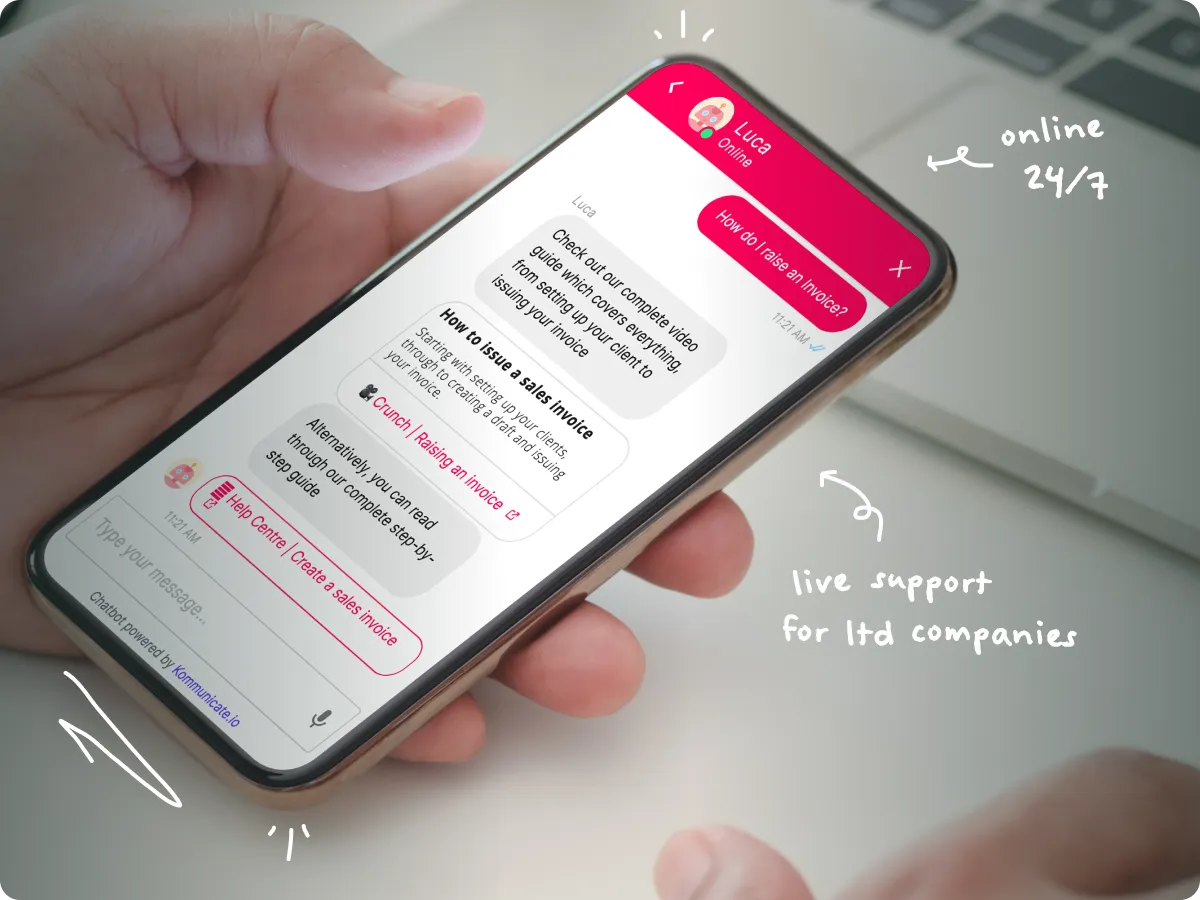Understanding and handling tax responsibilities is critical to managing the financial aspects of a partnership.
The SA800 Partnership Tax Return is a vital document for partnerships in the UK, serving as a means to report their income, disposals, expenses, and other financial details to HM Revenue and Customs (HMRC).
This form is specifically designed for business partnerships, including those involving landlords who are in a partnership arrangement. Its purpose is to ensure that all income and financial activities within a partnership are transparent and correctly taxed.
In this article, we aim to provide clear insights into the SA800 Partnership Tax Return. Whether you are new to partnership tax responsibilities or looking for a refresher, this guide will cover the essential aspects of the SA800, from who needs to file it to tips on its completion and submission.
So you can effectively manage this aspect of your partnership's financial duties, ensuring compliance with UK tax regulations.
Understanding the SA800 Partnership Tax Return
The SA800 Partnership Tax Return is a comprehensive report, detailing the financial activities of a partnership to HM Revenue and Customs (HMRC).
This form is meticulously designed to capture a wide range of financial details, ensuring that all partnerships are transparent and accountable in their financial dealings.
What Does the SA800 Cover?
- Trading and Professional Income: This encompasses the primary business activities of the partnership.
- Taxed Interest and Alternative Finance Receipts: These are the interests or financial returns received from banks, building societies, or other financial institutions.
The Role of the SA800 in Financial Reporting
Filing the SA800 Partnership Tax Return is an essential duty for specific types of partnerships in the UK. Understanding who needs to file and adhering to deadlines is crucial for compliance and avoiding penalties.
- Ensuring Transparency: The SA800 provides a clear and detailed view of the partnership’s financial status. This transparency is vital for both the partnership and HMRC.
- Facilitating Accurate Tax Assessment: By providing detailed financial information, the SA800 aids HMRC in assessing the correct amount of tax owed by the partnership.
- Maintaining Financial Integrity: Accurate and complete filing of the SA800 helps in maintaining the financial integrity of the partnership, an essential aspect of business credibility and trustworthiness.
Who Needs to File and Deadlines
The requirement to file the SA800 extends to various forms of partnerships, including:
- Business Partnerships: These include any group of individuals who have formed a partnership to conduct business activities.
- Landlord Partnerships: Partnerships formed for the purpose of property rental or management.
- Other Partnership Arrangements: Any other form of partnership that engages in financial activities generating income.
Filing Deadlines: A Critical Timeline
Staying aware of filing deadlines is vital to avoid penalties. The deadlines for filing the SA800 Partnership Tax Return are as follows:
- Paper Partnership Tax Return: The deadline is typically 31 October following the end of the tax year.
- Online Partnership Tax Return: This must be submitted by 31 January following the end of the tax year.
These deadlines are set to give partnerships ample time to gather and report their financial information accurately. Planning and preparing your tax return well in advance is advisable in order to meet these deadlines and is essential to avoid late filing penalties.
Penalties for Late Filing
Failing to file the SA800 on time can result in significant penalties, which include:
- Initial Penalty: A £100 penalty is imposed on each partner if the return is not filed by the deadline.
- Continued Delays: Additional penalties accrue if the delay continues. These can include daily penalties and further fixed fines, depending on the length of the delay.
Understanding and respecting these deadlines is not just a matter of regulatory compliance but also a step towards maintaining financial discipline within the partnership.
The Filing Process
Successfully completing and submitting the SA800 Partnership Tax Return is a straightforward process if you follow these essential steps.
Steps in Filing the SA800
1. Determine the Need to File: Ensure that your partnership's financial activities fall under the criteria that require the filing of the SA800. This applies to all forms of partnerships with taxable activities.
2. Gather Financial Information:Collect all relevant financial data, including income, expenses, and interest receipts. Accuracy here is crucial for correct reporting.
3. Nominate a Responsible Partner: Appoint a partner responsible for completing and submitting the SA800. This person acts as the point of contact with HMRC.
4. Use Commercial Filing Software for Online Submission: If you choose to file online, you will need to use HMRC-approved commercial software. This software helps to streamline the submission process and ensures that the return meets HMRC's format requirements.
5. Complete the SA800 Form: Fill in the form carefully, ensuring all information is accurate and complete. Pay special attention to different sections that apply specifically to your partnership’s financial activities.
6. Submit Before the Deadline: Ensure that the completed form is submitted before the relevant deadline, whether you are filing on paper or online.
By following these steps, your partnership can fulfil its obligations under UK tax law, ensuring that the SA800 is filed accurately and on time.
Supplementary Pages and Additional Information
Depending on your partnership's financial activities, various supplementary pages may need to be included. This section provides a brief overview of these additional requirements.
Types of Supplementary Pages:
SA800(PS) - Partnership Statement: Used to declare earnings from non-trading or non-professional income sources.
SA800(TP) - Trading and Professional Income: For recording income from more than one trade or profession.
SA801 - UK Property Income: To report income earned from UK property.
SA802 - Foreign Income: If the partnership earns income from outside the UK.
SA803 - Disposal of Chargeable Assets: Used for reporting the disposal of assets subject to capital gains tax.
SA804 - Savings, Investments, and Other Income: To record income from savings, investments, and other miscellaneous sources.
Why are These Pages Important?
These supplementary pages allow for a more detailed and specific reporting of various income types. This level of detail is essential for HMRC to accurately assess the tax liabilities of your partnership.
How to Determine Which Pages You Need
- Assess Your Income Sources: Review the types of income your partnership has received over the tax year.
- Refer to HMRC Guidelines: HMRC provides detailed guidance on which types of income should be reported on each supplementary page
Personal Tax Returns of Partners (SA100)
In addition to the SA800 Partnership Tax Return, each partner within the partnership must also take care of their individual tax responsibilities.
Importance of SA100 for Partners
- Individual Responsibility: Each partner must report their share of the partnership's profit or loss on their personal tax return.
- Determining Individual Tax Liability: The SA100 helps calculate how much tax each partner owes, based on their share of the partnership's income.
- SA104 - Supplementary Pages for Partners
- Partners need to fill out the SA104 supplementary pages along with their SA100.
These pages are specifically for declaring income from partnerships. There could be different SA104 forms depending on the partner's circumstances.
Coordinating SA800 and SA100 Filings
- Ensure Consistency: Information on individual SA100 forms should align with what's reported on the SA800.
- Timing: Although partners have individual responsibilities for their SA100 forms, coordinating the timing with the SA800 submission can help maintain consistency.
Common Mistakes and Tips for Compliance
Filing tax returns, especially in the context of a partnership, can be complex. Awareness of common pitfalls and adherence to best practices can help ensure accuracy and compliance.
Tips for Compliance
- Double-Check All Entries: Ensure all information is accurate and complete before submission.
- Maintain Good Records: Keep detailed financial records throughout the year to simplify the process of filling out the tax returns.
- Seek Professional Advice: Consider consulting with a tax professional, especially if your partnership's financial situation is complex.
- Use HMRC Resources: HMRC provides various guides and resources to assist in the completion of SA800 and SA100 forms.
By avoiding common mistakes and following these tips, partnerships and their members can ensure a smoother, compliant tax filing process.
Mastering the SA800: Ensuring Compliance and Accuracy
This comprehensive guide has covered the essential elements of the SA800, from understanding its purpose to detailing the process of accurate and timely filing.
We've explored the vital role this document plays in ensuring financial transparency and integrity, and its significance in the accurate assessment of partnership tax liabilities.
Remember, while the process may seem daunting, thorough preparation, attention to detail, and utilising available resources, including professional advice when necessary, can simplify the task.
.svg)

.jpg)








.jpeg)


